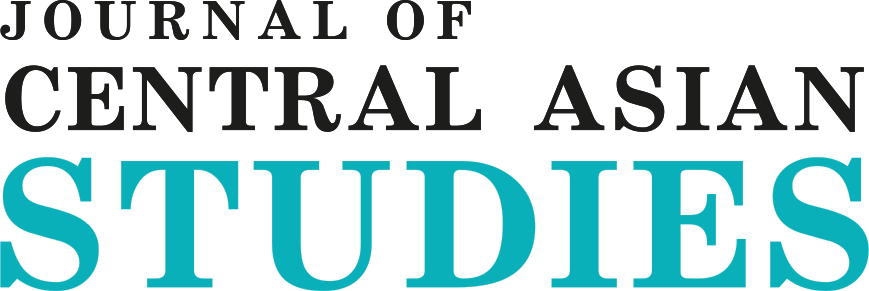Review Process and Reviewer Guidelines
Purpose of the Review Process
The review process ensures that manuscripts meet the highest standards of quality, originality, and relevance. It aims to:
- Provide an objective assessment of the manuscript’s content.
- Ensure alignment with the journal’s aims and scope.
- Offer constructive recommendations for improvement.
Motivation and Acknowledgement of Reviewers
The Journal of Central Asian Studies values the essential contribution of peer reviewers. To recognize their work, the journal offers a reviewer certificate (upon request), annual public acknowledgement on the journal’s website, and the option to link their reviews to Reviewer Credits. Outstanding reviewers can be promoted to the Editorial Board.
Steps of the Review Track Process:
1. Article Submission: Author(s) submit their manuscript through the system and receive an automatic notification confirming receipt. Each manuscript is assigned a unique registration number and date of receipt to ensure author anonymity during the review process.
2. Internal Review (within 10 working days): The editorial team reviews the manuscript for originality, completeness, relevance to the journal’s scope, and adherence to formatting guidelines.
3. Double-Blind Peer Review (up to 2-3 months): Manuscripts that pass the preliminary check are assigned to three or more independent scholars or experts in the relevant research field. These reviewers are not affiliated with the editorial team or the authors' institutions. They evaluate the manuscript's theoretical framework, methodology, practical value, and scientific significance while ensuring compliance with publication ethics guidelines.
4. Author Revisions (up to 1 month): If reviewers request changes, author(s) must either make the revisions or provide reasonable refutations. A response letter detailing changes must accompany the revised manuscript. If necessary, the editor may send the manuscript for a second round of peer review. The reviewers assigned for the second round may differ from those involved in the initial review.
5. Final Decision: The editorial team evaluates the revised manuscript and makes the final decision regarding acceptance or rejection.
Review Process Principles
- Double-Blind Peer Review: Neither authors nor reviewers are aware of each other’s identities.
- Confidentiality: Manuscripts are the intellectual property of authors and must not be disclosed, discussed, or cited before publication.
- Ethical Evaluation: Reviewers should notify the editorial team if they suspect plagiarism, authorship disputes, or data falsification, providing appropriate evidence.
- Editorial Discretion: The editorial team reserves the right to consult additional reviewers if necessary and to reject manuscripts that do not meet quality standards.
- Integrity: All communication between the editorial team, authors, and reviewers is conducted through the electronic platform (OJS) or, in exceptional cases, via email. The editorial team adheres to strict editorial ethics.
Reviewer Instructions
Step 1: Registration
- Register on the journal’s website.
- Select: “Yes, I would like to be contacted with requests to review submissions to this journal” and indicate your reviewing expertise.
Step 2: Invitation to review
- The editorial team will assess your profile and invite you to review when there is a manuscript match.
- Invitations are sent via email (please check your spam folder too).
- You have 4–5 days to accept or decline the invitation.
Step 3: Review submission
- Access the manuscript and evaluation form on your reviewer dashboard.
- Use the form as a guideline, though strict adherence is not mandatory.
- Your review is considered complete once you receive a confirmation email.
Reviewer Expectations
- Submit reviews within the assigned time or request an extension if needed.
- Provide objective, constructive, and detailed feedback.
- Disclose conflicts of interest and decline reviews when appropriate.
- Maintain professionalism and adhere to ethical standards.
- Notify the editorial team of any concerns related to plagiarism or research ethics.
Note: The editorial team reserves the right to discontinue collaboration with reviewers who submit low-quality or unethical reviews.
Last updated 2025-11-14




 Open content is licensed under the CC-BY
Open content is licensed under the CC-BY 